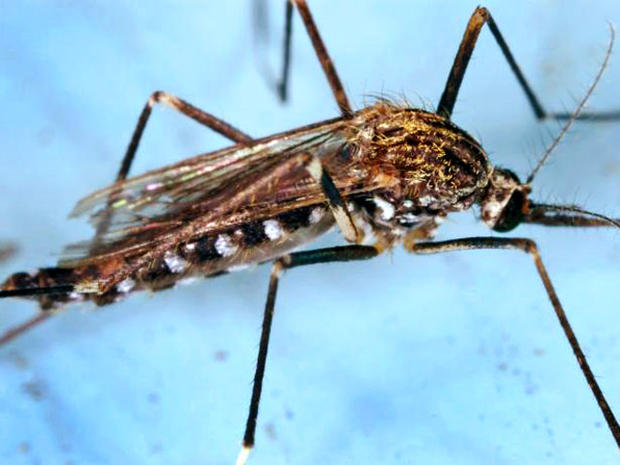CDC: Most cases of West Nile virus reported since 2004
(CBS News) The Centers for Disease Control and Prevention (CDC) is urging people to take precautions against the West Nile virus, finding that some areas of the U.S. are seeing greater and earlier disease activity compared to previous years. According to the agency, there have been more reported cases of West Nile virus through this July than any other year since 2004.
West Nile Virus confirmed across country: How to stay safe
Forty-two states have seen infections in people, birds and mosquitoes in 2012. Thus far there have been 241 human cases and four deaths. Eighty percent of the cases are from Texas, Mississippi and Oklahoma. Typically most people are infected from June through September, with numbers peaking in mid-August. This potentially means that even though the numbers are quite large, we haven't seen the worst of West Nile yet.
"It is not clear why we are seeing more activity than in recent years," Dr. Marc Fischer, medical epidemiologist with CDC's Arboviral Diseases Branch, said in a press release. "Regardless of the reasons for the increase, people should be aware of the West Nile virus activity in their area and take action to protect themselves and their family."
According to the CDC, about one in 150 people infected with the virus will develop a severe illness which includes high fever, headache, neck stiffness, stupor, disorientation, coma, tremors, convulsions, muscle weakness, vision loss, numbness and paralysis. The symptoms last several weeks, and the neurological effects, which affects less than one percent of those with the virus, can be permanent. Up to 20 percent of patients will have fever, headache, body aches, nausea, vomiting and may also show swollen lymph glands or a skin rash on the chest, stomach and back. There currently are no medications to treat or vaccines to prevent West Nile virus.
West Nile virus is transmitted through infected mosquitoes. Weather, numbers of mosquitoes that spread the virus and human behavior can all affect the prevalence of the disease. In a rare cases, West Nile has been spread through blood transfusions, organ transplants, breastfeeding and pregnancy from mother to baby, the CDC added. People over 50 and those with certain medical conditions, such as cancer, diabetes, hypertension, kidney disease, and organ transplants, are at greater risk.
However 80 percent of those infected will not show any symptoms at all, leaving many cases unreported. ,Dr. Bob England, director of Maricopa County Department of Public Health in Arizona, previously told CBS local affiliate KPHO in Phoenix that minor cases go unreported as well because symptoms only last for a day or two and never require a doctor's visit.
The CDC says that the best way to avoid getting West Nile virus is to prevent mosquito bites. Using insect repellants when you go outdoors, wearing long sleeves and pants during dawn and dusk, installing or repairing screens on windows and doors, using air conditioning and emptying standing water from items outside your home can help keep the insects away.
